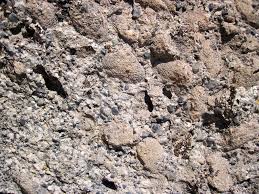Science News Roundup: Fossils of colossal snake Vasuki unearthed in India mine; Gigantic marine reptile's fossils found by British girl and father and more
"Already now, by order of Roscosmos, a modernized Angara-A5M rocket with a more powerful propulsion engine is being created," Yury Borisov said in televised comments. Fossils of colossal snake Vasuki unearthed in India mine Fossil vertebrae unearthed in a lignite mine are the remains of one of the largest snakes that ever lived, a monster estimated at up to 49 feet (15 meters) in length - longer than a T.

Following is a summary of current science news briefs.
Head of Russian space agency says work under way on modernised Angara rocket
Russia is working on a modernised Angara-A5M rocket capable of launching manned spacecraft, and plans to launch it in 2027, the head of its Roscosmos state space agency said on Wednesday. "Already now, by order of Roscosmos, a modernized Angara-A5M rocket with a more powerful propulsion engine is being created," Yury Borisov said in televised comments.
Fossils of colossal snake Vasuki unearthed in India mine
Fossil vertebrae unearthed in a lignite mine are the remains of one of the largest snakes that ever lived, a monster estimated at up to 49 feet (15 meters) in length - longer than a T. rex - that prowled the swamps of India around 47 million years ago. Scientists said on Thursday they have recovered 27 vertebrae from the snake, including a few still in the same position as they would have been when the limbless reptile was alive. They said the snake, which they named Vasuki indicus, would have looked like a modern-day large python and would not have been venomous.
Gigantic marine reptile's fossils found by British girl and father
A fossil jawbone found by a British girl and her father on a beach in Somerset, England belongs to a gigantic marine reptile dating to 202 million years ago that appears to have been among the largest animals ever on Earth. Researchers said on Wednesday the bone, called a surangular, was from a type of ocean-going reptile called an ichthyosaur. Based on its dimensions compared to the same bone in closely related ichthyosaurs, the researchers estimated that the Triassic Period creature, which they named Ichthyotitan severnensis, was between 72 and 85 feet (22-26 meters) long.
(With inputs from agencies.)
ALSO READ
India Implements Military Modernization Plans to Reduce Reliance on Russian Arms: US Official
Nearly 1,000 houses, plots flooded in Russia's Kurgan region
China plays backstop to Russia's war against Ukraine
Russia's prosecutor general arrives in Cuba for bilateral talks
Ukraine says it downs all nine drones launched by Russia










